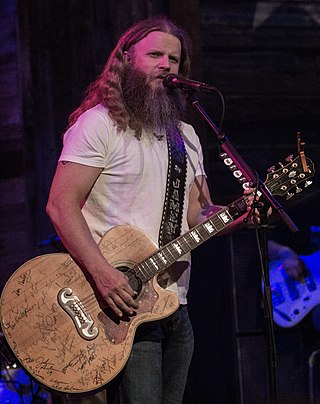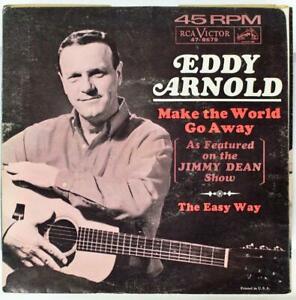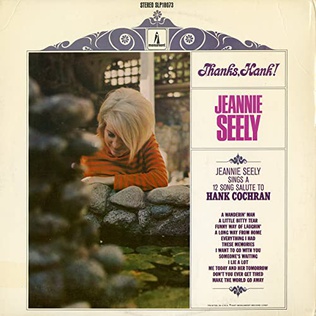Related Research Articles

Burl Icle Ivanhoe Ives was an American musician, singer and actor with a career that spanned more than six decades.

Robert Joseph Bare Sr. is an American country singer and songwriter, best known for the songs "Marie Laveau", "Detroit City" and "500 Miles Away from Home". He is the father of Bobby Bare Jr., also a musician.

Garland Perry "Hank" Cochran was an American country music singer and songwriter. Starting during the 1960s, Cochran was a prolific songwriter in the genre, including major hits by Patsy Cline, Ray Price, Eddy Arnold, and others. Cochran was also a recording artist between 1962 and 1980, scoring seven times on the Billboard country music charts, with his greatest solo success being the No. 20 "Sally Was a Good Old Girl." In 2014, he was inducted into the Country Music Hall of Fame.

Marilyn Jeanne Seely is an American singer, songwriter, record producer and actress. Most notably identified with the country music genre, Seely found success with the Grammy Award-winning song "Don't Touch Me" (1966). Her soul-inspired vocal delivery gave her the nickname of "Miss Country Soul". Seely is also known for her membership and presence on the Grand Ole Opry, having appeared more times on the program than any other performer.
This is a list of notable events in country music that took place in 1962.

Jamey Johnson is an American country music singer and songwriter.
"(Ghost) Riders in the Sky: A Cowboy Legend" is a cowboy-styled country/western song written in 1948 by American songwriter, film and television actor Stan Jones.

"Make the World Go Away'" is a country pop song composed by Hank Cochran. It has become a Top 40 popular success three times: for Timi Yuro (1963), Eddy Arnold (1965), and the brother-sister duo Donny and Marie Osmond (1975). The original version of the song was recorded by Ray Price in 1963. and popularized again by Mickey Gilley in (1999) has remained a country-crooner standard ever since.

It's Just My Funny Way of Laughin' is a 1962 album by Burl Ives, recorded in Nashville, Tennessee. It rose to No. 24 on Billboard (magazine)'s 1962 Pop Albums Chart. During the same year, the title song, composed by Hank Cochran, reached No. 3 on Billboard's Contemporary Adult Singles Chart, No. 9 on the Country Singles Chart, and No. 10 on the Pop Singles Chart. The title song earned Ives a Grammy Award for Best Country and Western Recording. Another song, "Call Me Mr. In-Between," composed by Harlan Howard, peaked at No. 3 on the Country Singles Chart, No. 6 on the Adult Contemporary Singles Chart, and No. 19 on the Pop Singles Chart.

The Versatile Burl Ives! is a 1961 album by Burl Ives, containing his hit single "A Little Bitty Tear." The album reached No. 35 on Billboard's 1962 Pop Album Chart. In the same year, "A Little Bitty Tear" climbed to No. 1 on Billboard's Adult Contemporary Chart, No. 2 on the Country Singles Chart, and No. 9 on the Pop Singles Chart. The pop, country, and folk songs on this album were selected to highlight the folk singer's versatility. Some of his performances, such as his cover of Johnny Cash's "I Walk the Line," represent a significant departure from his earlier repertoire. Ives is accompanied by the Anita Kerr Singers and Owen Bradley's orchestra.

Songs of the West is one of the several albums from the early 1960s that signalled Burl Ives's move away from folk music into country western and pop. In Ives's discography this album is immediately preceded by The Versatile Burl Ives! and followed by It's Just My Funny Way of Laughin', two Decca albums containing songs that earned Ives his highest rankings on Billboard's pop, country, and easy-listening charts.
"A Little Bitty Tear" is a song written by the American country songwriter Hank Cochran. It has been recorded by many musical acts, the first being American recording artist Burl Ives. It has since been recorded by others, including Wanda Jackson, Bing Crosby, Chet Atkins, The Shadows and Cochran himself.

"Don't Touch Me" is a song written by Hank Cochran. It was originally written for and recorded by American country artist Jeannie Seely. The song was released as a single on Monument Records in March 1966 and became a major Billboard country hit. "Don't Touch Me" became Seely's signature song and her biggest hit as a solo artist. It would later appear on her debut studio album and be re-recorded by Seely in later years.
"The Wild Side of Life" is a song made famous by country music singer Hank Thompson. Originally released in 1952, the song became one of the most popular recordings in the genre's history, spending 15 weeks at number one on the Billboard country chart, solidified Thompson's status as a country music superstar and inspired the answer song, "It Wasn't God Who Made Honky Tonk Angels" by Kitty Wells. In 1999, the song was inducted into the Grammy Hall of Fame.
"It Keeps Right On a-Hurtin'" is a song written and recorded by Johnny Tillotson, which was a major hit for him in 1962. The song was nominated for a Grammy for Best Country & Western song for 1962 but lost to Burl Ives' Funny Way Of Laughing. It has been recorded by many other artists.

"A Wanderin' Man" is a song written by Hank Cochran that was originally recorded by American country artist Jeannie Seely. Released as a single by Monument Records, it reached the top 20 of the US country songs chart in 1967. It was Seely's third top 20 single in her career and was given positive reviews from music magazines following its release. It appeared on her second studio album called Thanks, Hank!.

"I'll Love You More (Than You'll Need)" is a song written by Hank Cochran that was originally recorded by American country singer Jeannie Seely. Released in 1968 as a single by Monument Records, it became her third top ten single on the US country chart songs chart. The song also served as the title track to Seely's 1968 studio album I'll Love You More and received a positive response from critics following its release.

Thanks, Hank! is a studio album by American country artist Jeannie Seely. It was released on May 1967, by Monument Records and was produced by Fred Foster. The album contained songs written entirely by songwriter Hank Cochran, some of which were cover tunes while others were new tracks. Among the new tracks were two singles: the top 20 country single "A Wanderin' Man" and the charting song "These Memories". The LP itself made the top 20 of the US country chart. The album received reviews from AllMusic, Cash Box and Record World following its release.

"Wish I Didn't Have to Miss You" is a song written by Hank Cochran and Dave Kirby. It was originally and released as a duet by American country music artists Jack Greene and Jeannie Seely. Released as a single in October 1969, the song became a number two song on the US country chart in early 1970. The song was given positive reviews from Billboard and Cash Box magazines and would influence the making of their debut studio album in 1970.

Greatest Hits on Monument is a compilation album by American country music artist Jeannie Seely. It was released on March 9, 1993, via Sony Music Entertainment. The album was comprised on Seely's original recordings for the Monument label during the 1960s. It included some of her biggest hit singles during her career. It also featured songs written Seely herself as well as other writers, predominantly the material of Hank Cochran.
References
- ↑ "Burl Ives, "Funny Way of Laughin'" Chart Positions" . Retrieved March 3, 2019.
- ↑ "CHUM Hit Parade - April 23, 1962".
- ↑ "Burl Ives, It's Just My Funny Way of Laughin". Discogs . 1962. Retrieved March 3, 2019.
- ↑ "Top 100 Singles of 1962", Billboard , Section II, December 29, 1962. p. 82. Retrieved March 3, 2019.
- ↑ "Hank Cochran, Hits from the Heart". AllMusic . Retrieved March 3, 2019.
- ↑ "Jeannie Seely, "These Memories" Single Release" . Retrieved March 3, 2019.
- ↑ "Jim Ed Brown, Country's Best on Record". AllMusic . Retrieved March 3, 2019.